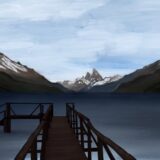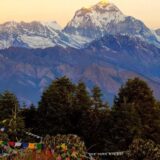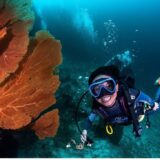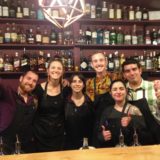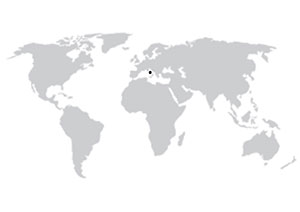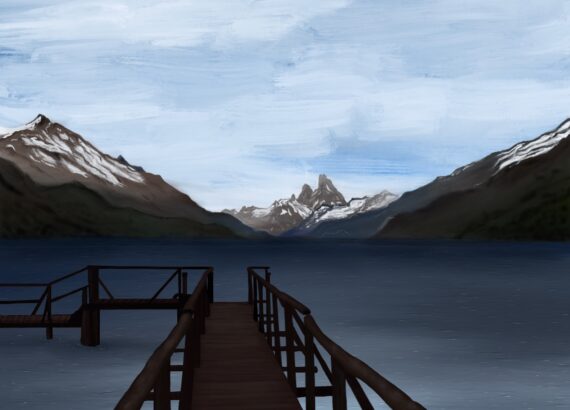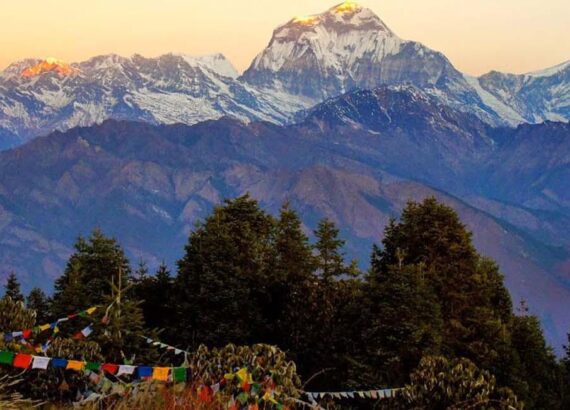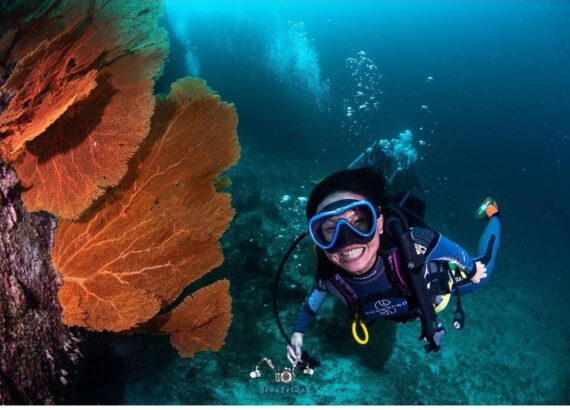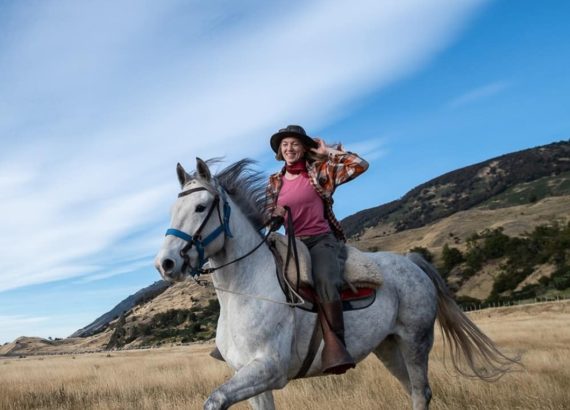extraordinary lives: from the office of a corporate to the end of the world, the story of nana.
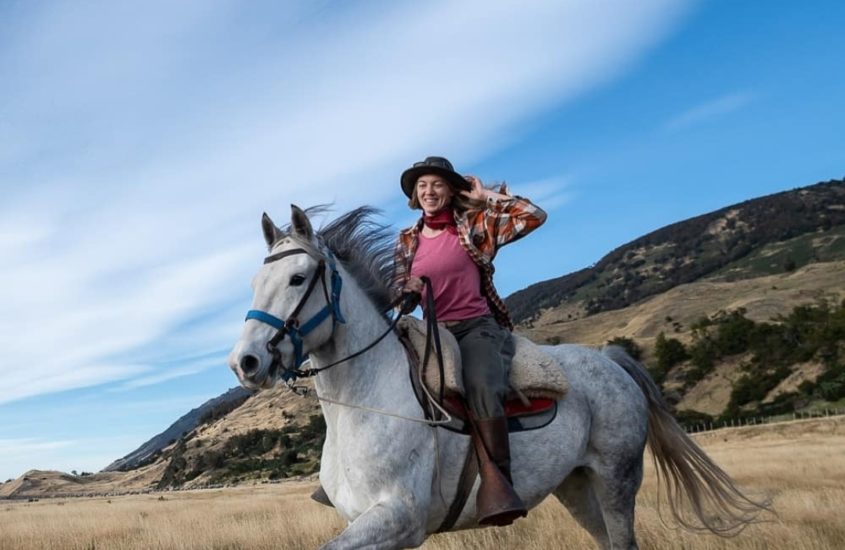
Puerto Natales is one of the biggest centers of the Chilean Patagonia, that, hold on, counts around 20.000 people! More than just the base camp for the hikers who want to explore the Torres del Paine National Park, one of the natural wonders of Patagonia, it is the landing point of some of the most curious travelers with the most amazing stories. The one you are going to hear is one of them, which will be told by the protagonist’s voice itself. A story made of brave and extraordinary choices, that starts in the Northern Europe, continues in Colombia and ends up in the fjords and mountains of this beautiful and remote land, called Patagonia; it begins between the desks of a corporate and ends up in an estancia, surrounded by horses and sheep.
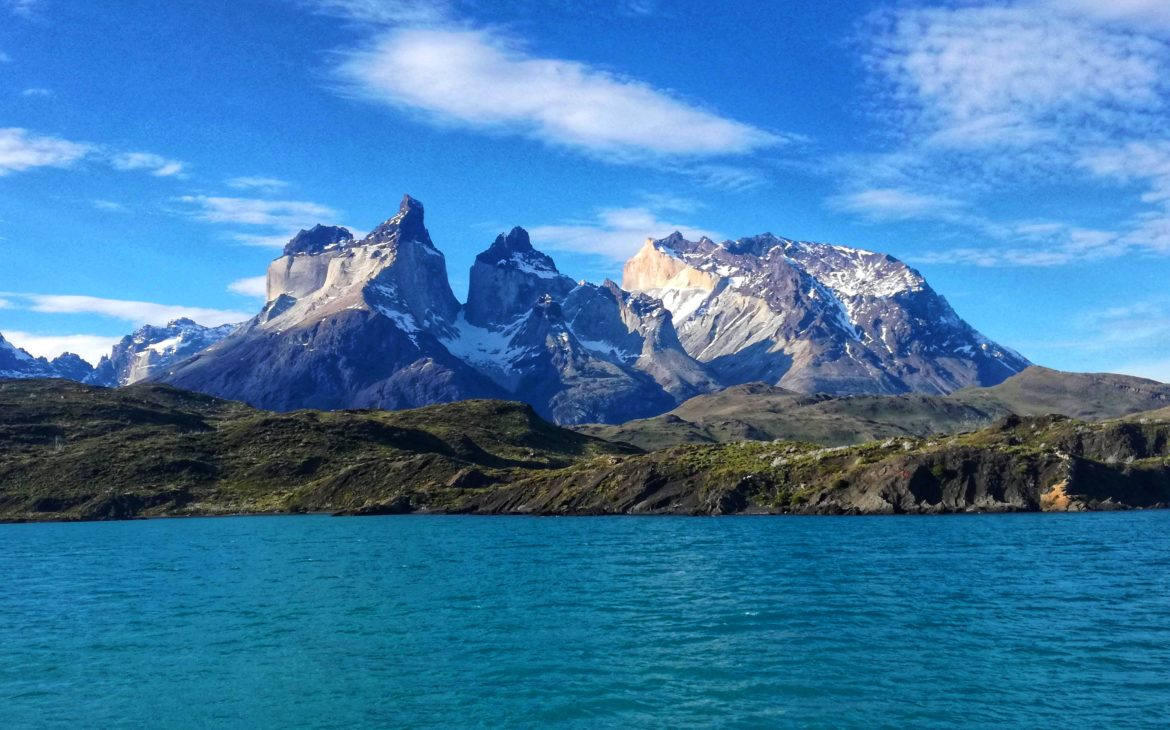
Hi Nana, would you like to introduce yourself?
My name is Nana, I am 33 years old and from Aarhus, Denmark. I finished my master’s in IT and Communication back in 2014 and immediately got a job as a Junior Consultant at a big international company, which I was quite excited about! To my disappointment, the job didn’t meet my expectations, it was very administrative and “putting things in boxes” whereas I like to take things out of the “boxes”, being creative, and wanting to optimize some old systems and the “we have always done like this” attitudes. I was very disappointed, to be honest, and almost entered a depression during my first year. This is when I decided to resign and take some time off to figure out what I really wanted. I had an old dream of visiting Colombia, and one night I found some cheap tickets that I brought: 1 month to Colombia, solo travel for the first time! That was in April 2016. On my last week there, I went to the Amazon Jungle at the Brazilian site and this was where I got to know my now-husband, who is Chilean. In September 2016, I moved to Chile to start my new life in Puerto Natales, one of the southernmost cities in Chilean Patagonia.
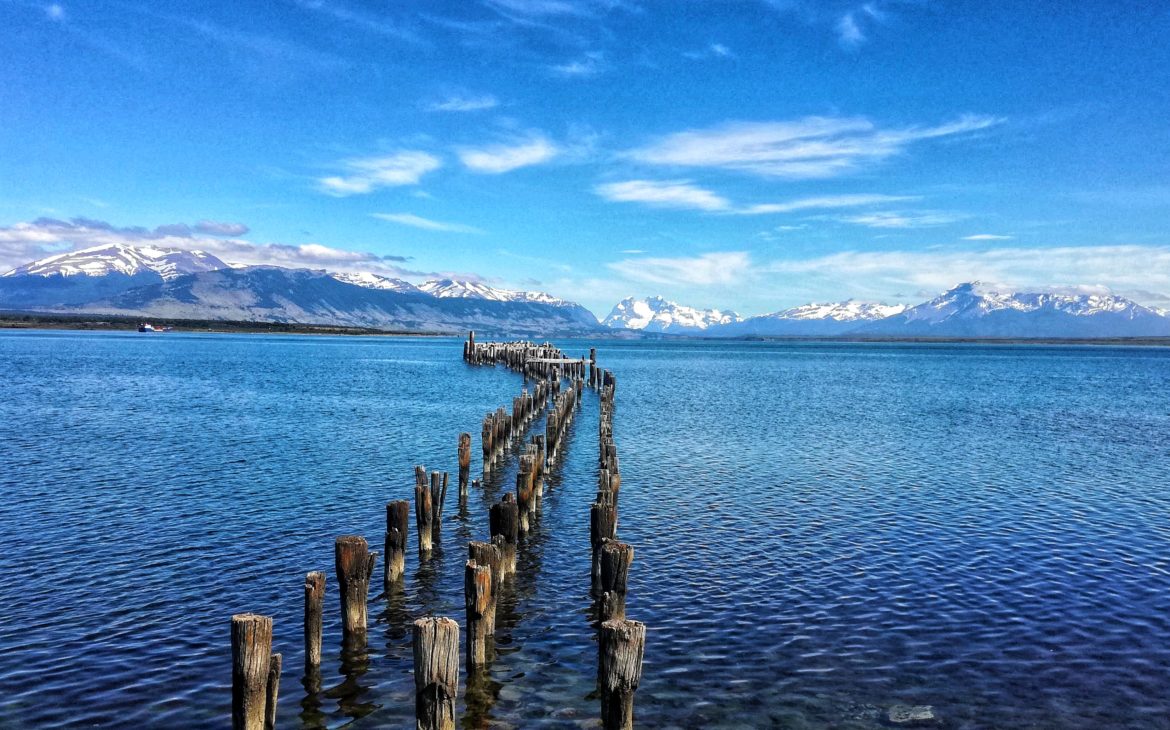
Which was the breaking point, when did you decide to make such a brave decision?
I hardly knew Victor, my now-husband, but I thought to myself “what is the worst thing that can happen?”. If it doesn’t work out, it doesn’t work out and I could just move back to Denmark, one experience richer and a funny story to tell later. No big deal. I was without a job and I don’t have any kids, so I didn’t have much to lose other than money.
If it doesn’t work out, it doesn’t work out and I could just move back to Denmark, one experience richer and a funny story to tell later.
Was the beginning in Chile as easy as you expected?
I felt very well-received in Chile, both Victor’s family and friends received me with open arms. Even though I spoke Spanish, Chilean Spanish was a challenge and I think this is where I had most frustrations because I could not express myself freely and I didn’t always understand what was happening around me. Victor made all the practical things easy for me in the beginning, he even found a job for me in a small outdoor shop. From there I could start the visa process. What was a big surprise for me was how expensive Chile is and how low the salaries are. Imagine, my base salary (without commission) was 352 EUR (as of 2016), and our rent was 385 EUR.
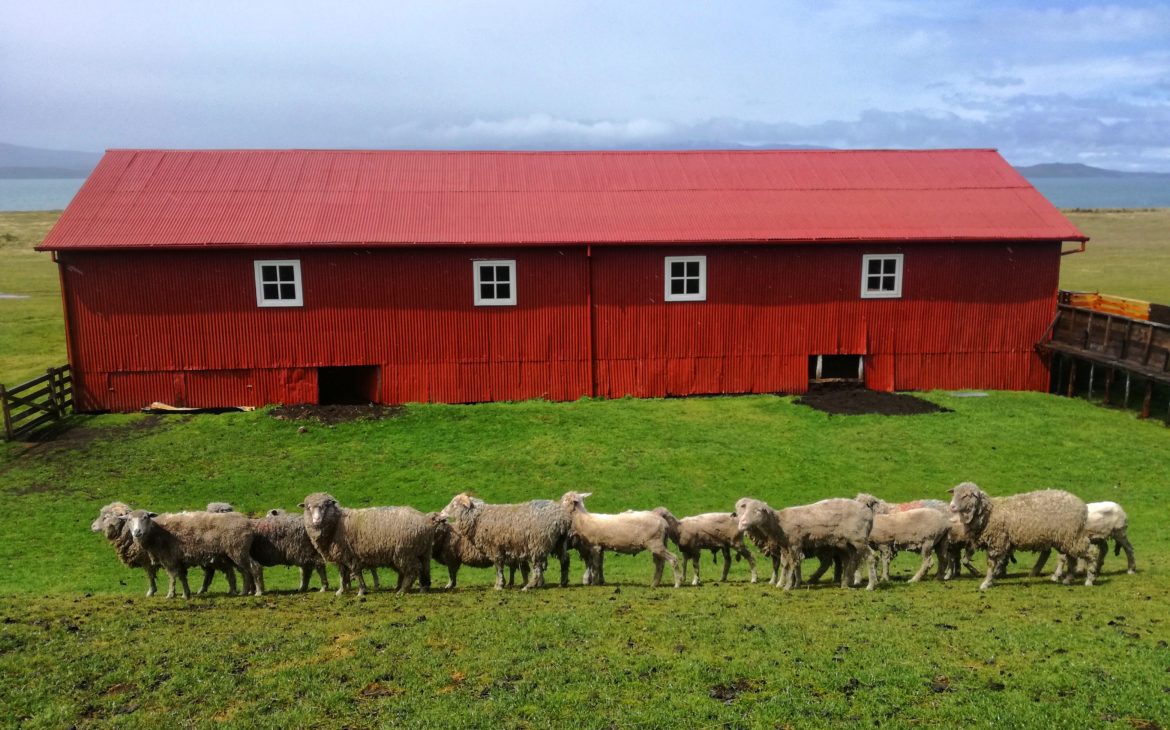
When did you find your job at estancia la peninsula?
After 4 months of working as a salesperson in the outdoor shop, I felt I needed to try something new, hopefully withing my profession. One of my friends, a clothing designer (le mouton vert btw), buys her wool at a local sheep farm (estancia) that does tourism activities, so I passed my CV to her and she passed it to one of the owners. It was perfect timing because he was looking for a sales and marketing manager, so this is how I got involved in Estancia La Península. My job was to develop tours, develop their online presence, and sell the activities to agencies and directs.
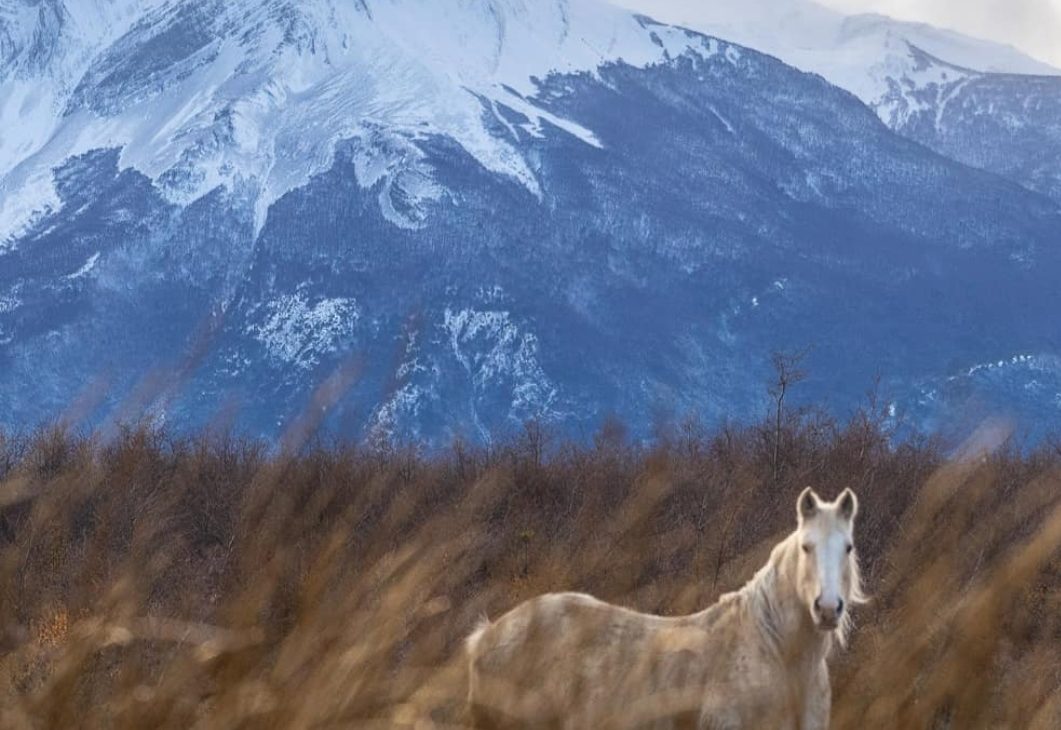
If you support the same principles, it is so easy to fall in love with the product and sell it. Why, because you have your heart in it and you feel identified with the whole concept.
What is the best thing of a simple life being completely in nature, surrounded by horses, sheeps and beautiful mountains?
For me, the best thing was the horses and nature! I used to have a horse for many years, so it was like going back to an old passion of mine. I loved the principles of the estancia like the no-blood principle (no burn marks, no ear cutting, and no tail-docking), that the animals live outside all year round, the care and conservation for nature, and so on. If you support the same principles, it is so easy to fall in love with the product and sell it. Why, because you have your heart in it and you feel identified with the whole concept. After a year, my boss invited me to do the herdings of sheep and cattle, and help with all farm-related work, which I loved to do. It was a perfect alternative to the desk-work at the office. I like to be creative developing content and selling the products, but being out there, living the real experience with the farmers and the animals, this was definitely one of the things I loved about my job.
Can you talk about the role of the estancias in this remote land, their stories and the myth of the gauchos?
Estancia is the Patagonian word for a livestock farm. The quality of the grass in Patagonia is pretty low because of the small amount of rain throughout the year, the strong wind, and the type of soil. This is why the estancias here need more kw2 per sheep. So usually the estancias have a lot of hectares compared to a livestock farm in other parts of Chile or even in other countries. The first immigrants from Europe that came here started doing livestock farming. In the late 19th and early 20th centuries, Argentinean and Chilean Patagonia had one of the world’s primary sheep farming areas. It was a huge industry and the sheep was called “the white gold.” Today, the industry isn’t that valuable anymore and this is why some estancias started to combine their farming with tourist activities. You can say a gaucho is a Patagonian name for a cowboy, a skilled person within horses and livestock management. The name and its concept is also used in Brazil and in Uruguay and is also categorized as a culture, the gaucho culture.
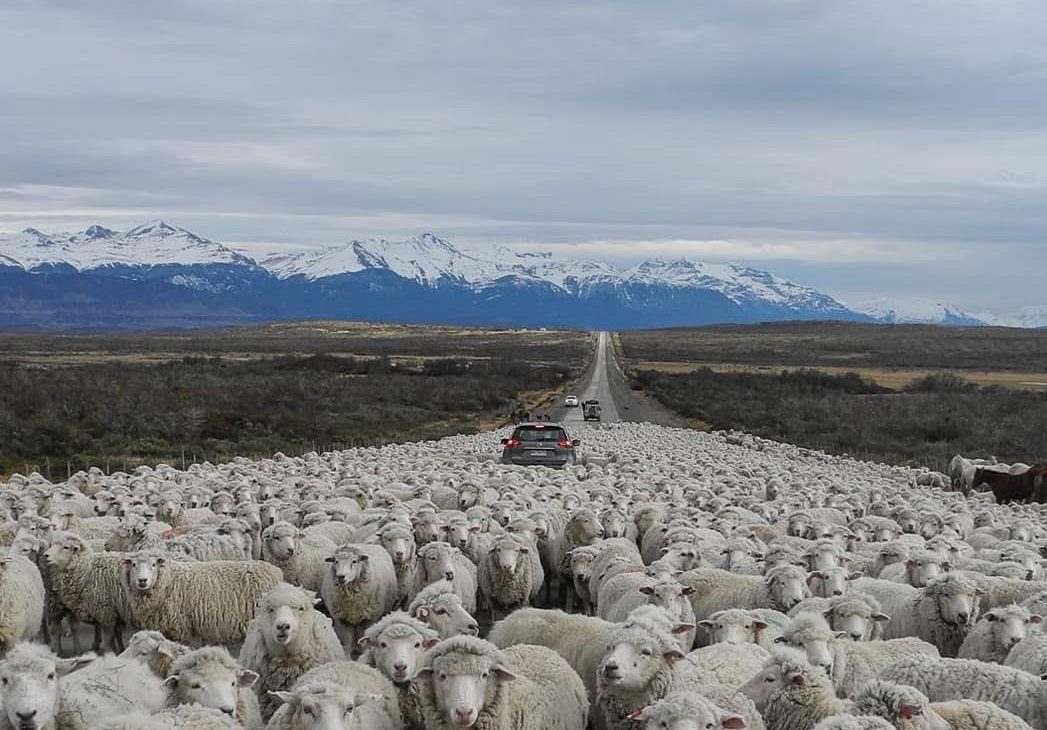
I really felt like I was at the end of the world when in Natales, can you explain to me that sensation, for you living there?
Puerto Natales definitely gives you the feeling of being at the end of the world and its surrounding nature is mesmerizing. People are friendly here, it is safe, and I think especially for people working in tourism, there is a special environment of people from all over the world and other parts of Chile that give us a sense of belonging even though we are far away from home. The feeling of isolation from the rest of the world can also be hard sometimes, this is why I like that there is a season of approx 9 months and then the other 3 months, you can leave to get a bit out of the “bubble” and see and do other stuff because the season can be very, very hard and intense.
What can you tell me about the rest of South America? What did you impress the most?
One of my favorite countries (besides Chile) is without a doubt Colombia. Sadly, it has a bad history from the Escobar and FARC time, which still affects its perception of the country. I never felt unsafe in my month there (I used to live in Mexico so I also know how to avoid troubles), the people were incredibly nice and the country is beautiful, especially if you are into nature experiences.
Peru, Bolivia, Argentina, and Brazil I only know certain areas and cities. I went 3 weeks to Peru to visit Cusco and Macchu Picchu but stayed most of my time in Huaraz to do hiking in the Huayhuash mountain range together with my husband. We are outdoor people, so when we travel, we often look for places to do trekking.
I heard about the sad situation regarding the stancia but tourism in general in this beautiful land called Patagonia, how is it going? Do you believe it will improve?
Chile did not handle the COVID-19 situation very well and quickly came out of control. The borders have been closed since March and we still don’t know when they are going to open (as of September) and the season normally starts in September-October. The truth is, that as long as the borders are closed and there is no date on when they are going to open, we cannot predict anything. Some say this season might not happen, and if it starts, it might be from January 2021, leaving only 3-4 months of the original season. If anybody wants to go to Patagonia, I will recommend them to look into season 2021-2022 to be sure that everything is operating as normal and avoid cancellation, etc. Post COVID-19 Patagonia is a perfect destination: remote, lots of fresh air, space, and nature! Things that I believe are much more appreciated today.
Which are your next steps?
Everything changed with the COVID-19 situation and many of us working in tourism lost our job, including me. The future in the tourism business is very uncertain and everybody says that we should re-invent ourselves and do other things, not relying on tourism for the next 1-2 years while the world is recovering and a vaccine will be available. I was lucky, my former boss offered me and my husband 4 months at the estancia, from April to July, taking care of the animals. It was without salary but paid health insurance and it was much better being there than in our house without anything to do. Then we got another offer of helping with a project in the USA from August to October, so right now I am just taking one month of the time. It is hard to make decisions in an uncertain world. I am just being thankful for the opportunities I have been given so far!
You can follow Nana’s adventures on her Instagram profile @patagoniadreaming and on her blog patagoniadreaming.com
